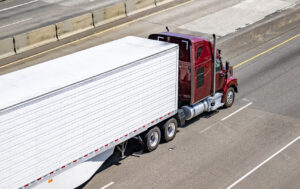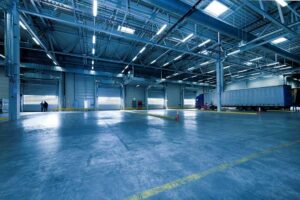WASHINGTON — The economic impact of Trump administration tariffs imposed on a number of goods, but especially steel and aluminum, continues to generate growing concern – especially regarding the cost of infrastructure projects.
The American Institute for International Steel, for example, noted that U.S. steel-using manufacturers are encountering product price increases of 50 percent or more and are experiencing difficulty in obtaining the steel they need, regardless of whether they buy domestic-sourced or imported steel.
“We continue to hear from many members that they are experiencing significant increases in the prices they are paying for steel and aluminum products. Some are even getting reports that delivery schedules will be delayed, Brian Turmail, spokesman for the Associated General Contractors of America trade group, told the American Association of State Highway and Transportation Officials Journal.
“While we are all for expanding domestic steel and aluminum production, tariffs and the broader damage they inflict on the economy are not the right approach,” he said. “A better solution is to boost domestic production by increasing long-term infrastructure funding.”
“Infrastructure in this country is already expensive – communities struggle not only to have new projects built, but also existing ones properly maintained,” Rep. Pete Olson, R-Texas, a member of the House Energy and Commerce, told the Journal via email.
“Every increase in costs makes it harder to get to work and keep Americans and commerce moving,” he said. “It also makes it more likely that smaller projects get left behind as the price tag for the highest profile ones starts to inflate.”
On May 31 when the tariffs were first imposed, Olson noted in a statement that “while I respect the president’s goal of seeking a better trade balance for our nation, trade is critically important to our economy and I have substantial concerns about this action.”
He explained that “past precedent” has shown tariffs have “unintended consequences” on consumers and businesses across the country, raising prices on everything from a new car or truck to a new pipeline or petrochemical plant, and could also trigger broader and more damaging trade disruptions.
“”We don’t know for sure and that’s what makes a trade war so dangerous,” Olson told the Journal. “Americans could face everything from less infrastructure to more expensive cars. Businesses that export – and the Americans who work for them or form their supply chain – could find themselves facing retaliation that hurt American competitiveness. Tariffs are taxes, but without the certainty that comes with each April 15.”
The AIIS and two of its member companies – SIM-TEX, LP, of Waller, Texas, and Kurt Orban Partners, LLC, of Burlingame, California – are pursuing a broader legal tactic as well. They filed a lawsuit June 27 in the U.S. Court of International Trade over the “constitutionality” of the statute under which President Trump imposed a 25 percent tariff on imported steel, as well as a court order preventing further enforcement of the tariff as well.
They allege that the statute being used to impose the tariffs – Section 232 of the Trade Expansion Act of 1962 – violates the constitutional prohibition against Congress delegating its legislative powers to the president because it lacks any “intelligible principle” to limit the discretion of the president.
Section 232 allows the president to impose unlimited tariffs or create other trade barriers at his unfettered discretion if he believes they are needed so that “imports will not threaten to impair the national security,” which AIIS said is “too expansively defined” in Section 232.
“Our complaint asks for a declaratory judgment and an injunction against its enforcement – meaning that the tariffs will no longer be collectable,” said Alan Morrison, lead counsel for the plaintiffs, during a press conference in Washington on June 27 regarding the lawsuit.
“We are not seeking monetary damages at this time [because] most of the [AIIS] members do not pay the tariffs themselves – they are harmed because their businesses are reduced. That’s why we need an injunction; the harm is irreparable,” he said. “We’re also not debating wisdom of the tariff policy, because we think Congress is the forum for doing that.”
The Trucker News Staff produces engaging content for not only TheTrucker.com, but also The Trucker Newspaper, which has been serving the trucking industry for more than 30 years. With a focus on drivers, the Trucker News Staff aims to provide relevant, objective content pertaining to the trucking segment of the transportation industry. The Trucker News Staff is based in Little Rock, Arkansas.








Where should I begin my rant? Please take into account I am NOT a politician and I don’t have a staff I can have go and research all the correct dates and numbers, so take the following comments as what they are-spur of the moment thoughts generated by this article.
Tarriffs? It was not that long ago (pre-WW?) that there was no federal income tax and 100% of the Federal Government’s budget came from tarriffs and the citizens of the USA kept more of their own money. If indeed tarriffs led to a higher price of goods, then (with no income tax) that would mean the US had/would have a Consumption Tax in place (which is what a lot of people would rather see) as the cost of the tariff would be passed to the consumer in the form of higher prices. “Evil” wealthy people and all those “evil” corporations would pay more in “taxes” as they consume more while the middle class and poor would pay less in taxes as they consume less. Meanwhile, paying no income tax and only a consumption tax encourages more people to learn how to do things for themselves such as plumbing, carpentry, auto repair, gardening-especially vegetables, with the only down side being that those people would get more exercise and the gardeners would eat better. Oh! That’s not a down side is it? Enough on Tarriffs.
High Cost of Infrastructure. Government has no business crying about the high price tag of infrastructure simply because it is the Government itself who cause that high price tag through OVER-REGULATION of almost everything in this country. Anyone read about the little girls whose lemonade stand was shut down because the didn’t first go to the Government and acquire a permit? I believe every trucker is familiar with over regulation. Hey Big Government, you want infrastructure to cost less? Relieve industry of onerous regulations!
I have to get to work, so to summarize, Trump is trying to cut onerous regulations via his policy of government must cut two regulations to institute one (which in turn can bring down the cost of infrastructure improvement). Trump is trying to bring jobs back to the USA by putting Tarriffs in place (or is he using Tarriffs as a bargaining chip against unfair trade policies of countries who do not have the USA’s interest in mind?), and as a side effect, he may be setting the stage to cut Federal Income Tax a little more once tarriffs generate more income to the feds. Even if we don’t get another tax cut, if we can pay down the national debt for our children and grandchildren that would be Great! (Make America Great Again) So what we need now is for these spineless Republicans to be booted out of office this midterm along with the obstructionist Dems and elect some true conservatives into office who will represent the will of the people not the will of the lobbyests! We are Taxed Enough Already!
Dems dont have anything to do with it! Republican President, house ,senate and now stacked deck supreme court! Naaaah my brudda, this is y’all’s baby! Need to check ya dude at 1600 Pennsylvania ave.